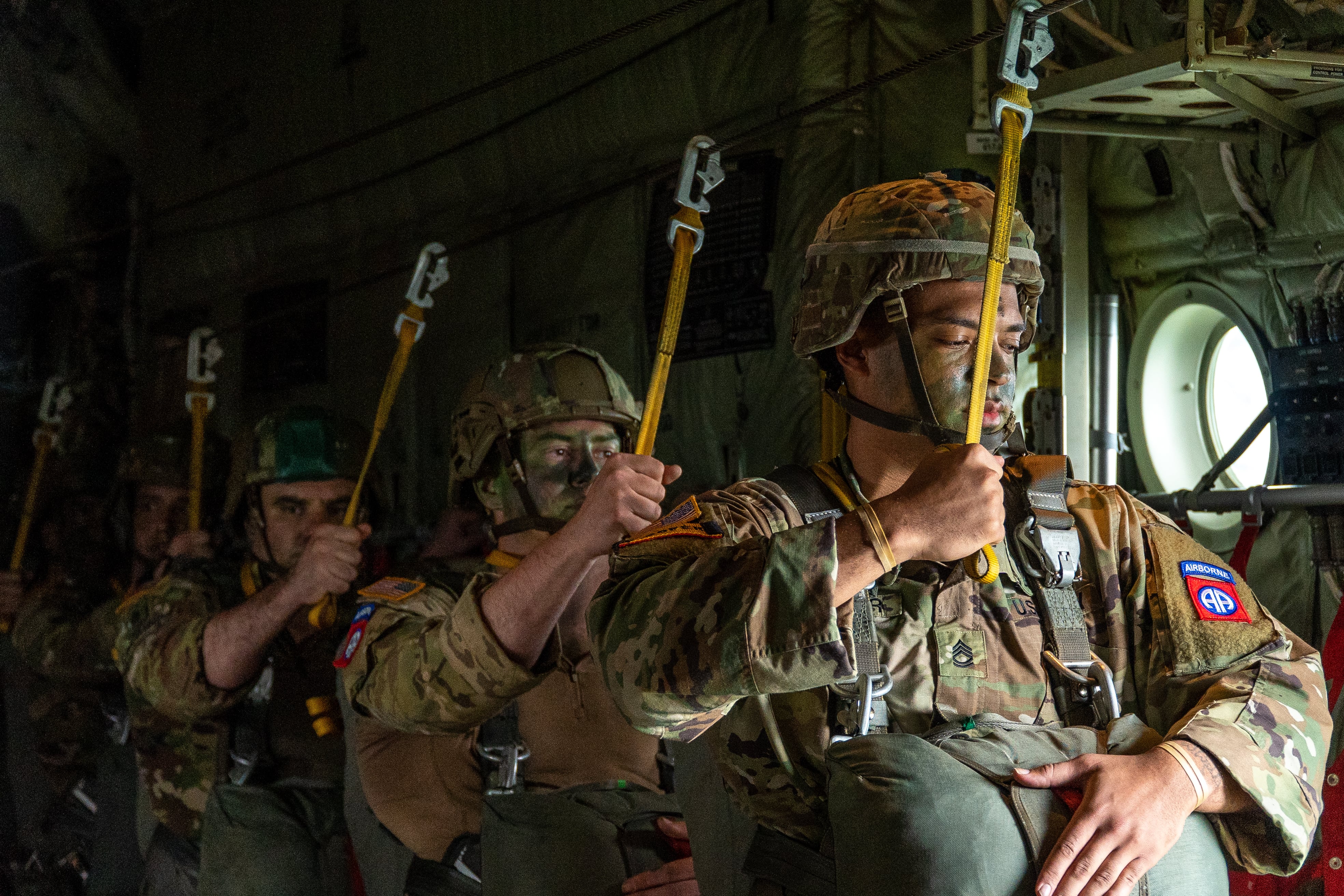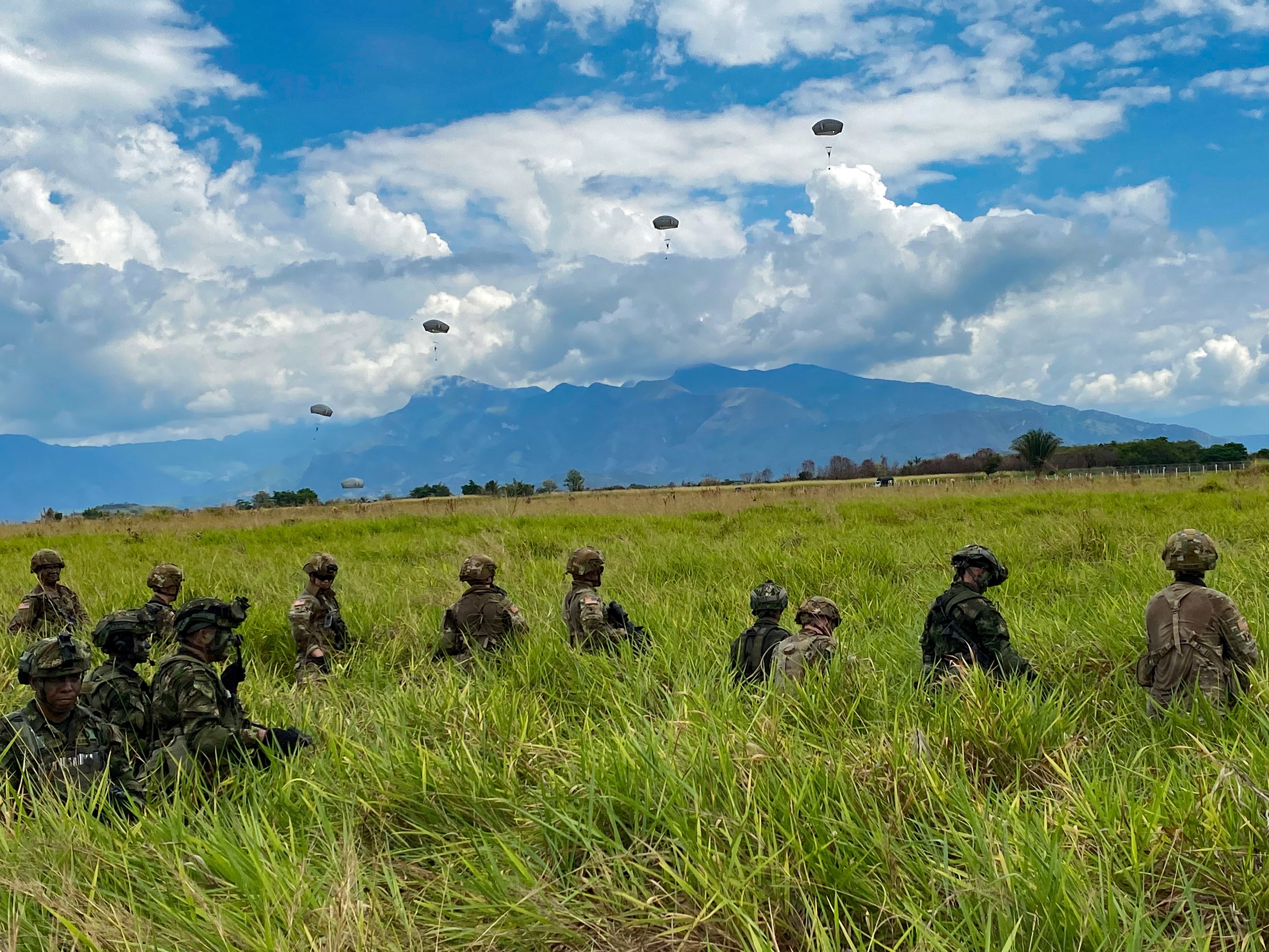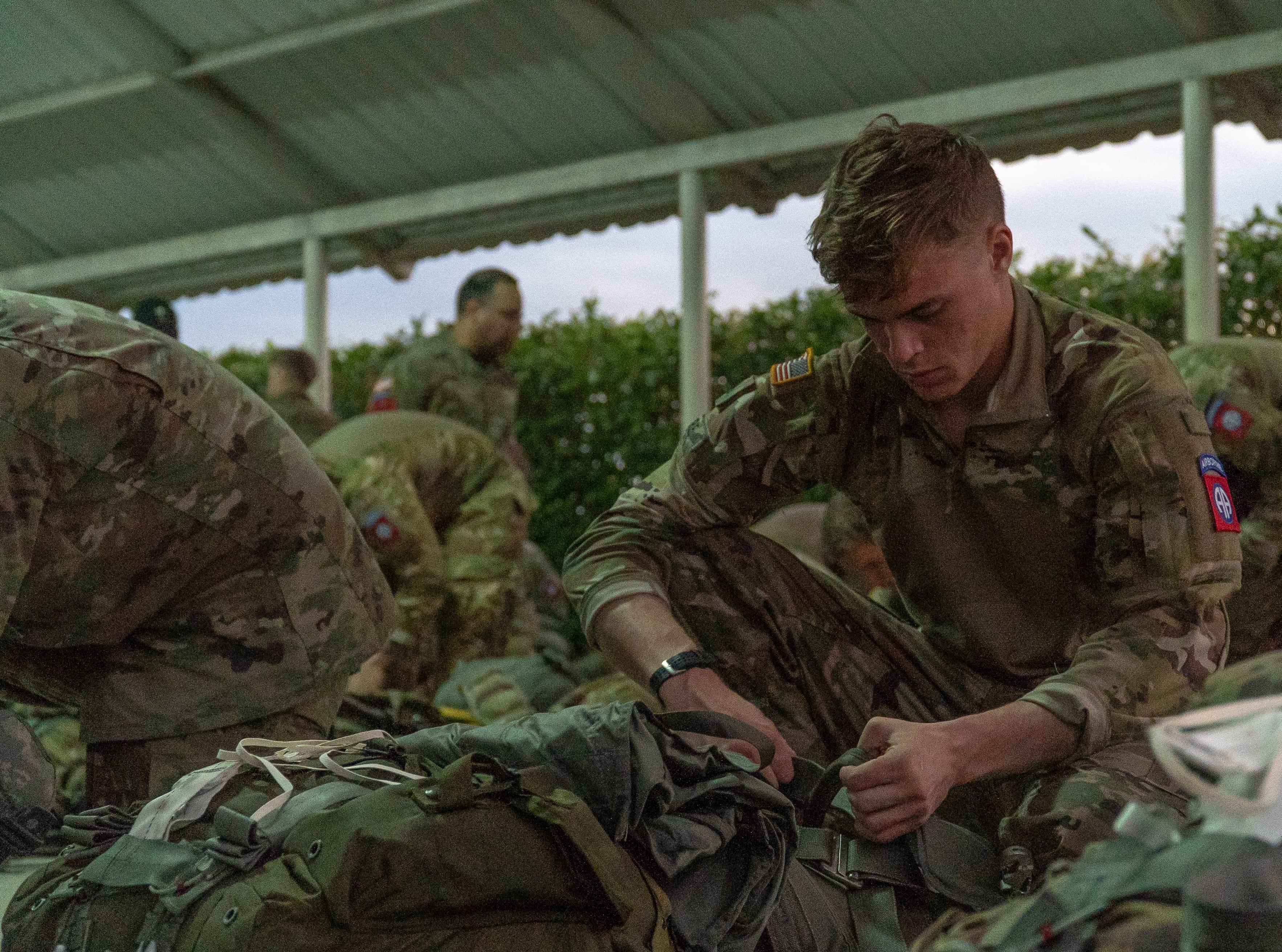About 75 paratroopers from the 82nd Airborne Division’s 2nd Brigade and Division Artillery Brigade began a static-line parachuting exercise near Tolemaida Air Base, Colombia on Sunday, service officials said.
Another 40 personnel from U.S. Army South are also participating in the jump from U.S. and Colombian C-130 Hercules aircraft. The jump was followed by tactical exercises designed to simulate the securing of an airfield.
U.S. paratroopers are subject matter experts on these kinds of operations and served as the air mission command and assault force, said division spokesman Lt. Col. Mike Burns.
“This gives us a repetition at projecting power through joint forcible entry,” Burns said, adding that the training jump and follow-on exercise forced the paratroopers and their aircraft to confront “unfamiliar conditions” alongside their Colombian partners. “It’s a unique opportunity for us to train away from the continental United States in unfamiliar terrain.”
Tolemaida Air Base has hosted multinational jumps in the past and is also the location of the Colombian National Training Center. U.S. Southern Command is sponsoring the exercise and touted it as a demonstration of commitment to the region. The Colombian troops came from 2nd Special Forces Battalion, according to pictures shared after Sunday’s jump.

The exercise comes on the heels of a recent Human Rights Watch report that documented an increase in criminal activity on the border of Colombia and Venezuela, including murder, forced labor, child recruitment and rape. The advocacy group stated that the offenses are often committed as part of criminal groups’ strategies to control people’s daily lives.
“The best way to deter or defeat any of these threats is with these partnerships, their capacity and ours helps both secure the U.S. and partners. So that’s the first response,” Navy Adm. Craig Faller, SOUTHCOM commander, said during a press briefing Thursday.
Colombia’s neighbor, Venezuela, is also reeling from political upheaval and a fractured economy. Faller blamed Venezuela President Nicolas Maduro for failing to clamp down on militant groups and allowing their activities to continue unchallenged.

“In terms of what’s happening in Venezuela, as the secretary mentioned, it’s [an] illegitimate government that is destroying the fabric of society," Faller said. "It’s becoming a safe haven. So it’s a fact that FARC [Revolutionary Armed Forces of Colombia], the ELN [National Liberation Army] and terrorists groups in narco-trafficking are using it as a base of opportunity.”
Although the FARC demobilized following a 2016 peace accord, a splinter faction continues to operate in Venezuela’s Apure state and Colombia’s Arauca province, according to the Human Rights Watch report.
Maduro “and his cronies” are “benefiting from that kind of people,” Faller said of the criminals along the border area. The United States has pressured Maduro economically and diplomatically to give up power, Defense Secretary Mark Esper said at the same event.
The U.S. imposed economic sanctions against banks, canceled visas for Venezuelan government officials and took other economic or political measures to pressure Maduro to exit the presidency.
“We will continue that," Esper added. “We think that the best path forward is through those paths, if you will.”
U.S. officials say that Maduro’s re-election last year was not legitimate. Last spring, the Donald Trump administration joined more than 50 other nations in recognizing the opposition head of the National Assembly, Juan Guaido, as interim president.
Kyle Rempfer was an editor and reporter who has covered combat operations, criminal cases, foreign military assistance and training accidents. Before entering journalism, Kyle served in U.S. Air Force Special Tactics and deployed in 2014 to Paktika Province, Afghanistan, and Baghdad, Iraq.









